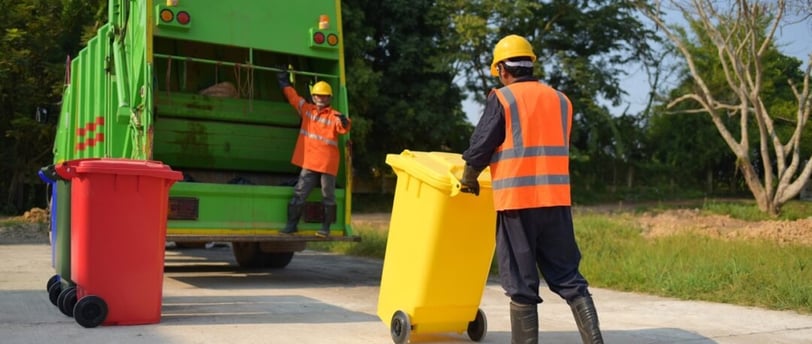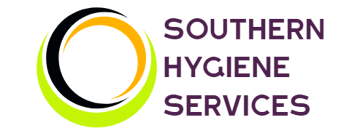Guidelines for Effective Clinical Waste Management
The consequences of mishandling clinical waste can be severe, posing significant health risks to both healthcare workers and the wider community. This article delves into the critical importance of stringent management and disposal protocols to mitigate these dangers and ensure a safe environment.
WASTE MANAGEMENT
4/1/20252 min read


Navigating the Complexities of Clinical Waste Management: A Guide for Healthcare Professionals
Introduction:
The safe and responsible management of clinical waste isn't just a best practice—it's a legal and ethical imperative. Globally, healthcare facilities are subject to stringent World Health Organization (WHO) standards, and in [mention your region, e.g., "New Zealand"], specific regulations further reinforce the need for meticulous waste handling. Understanding these guidelines is crucial for protecting both human health and the environment. At Southern Hygiene Services, we're dedicated to helping you navigate these complexities and ensure full compliance.
The Growing Demand for Clinical Waste Management:
Several factors are driving a significant surge in demand for expert clinical waste management services. The ongoing COVID-19 pandemic has created an unprecedented need for the safe disposal of infectious materials, including LFTs and PPE. Furthermore, the world's aging population is leading to increased volumes of incontinence waste. The rise in cosmetic procedures like injectables and tattooing necessitates stringent sharps disposal protocols. According to industry forecasts, the clinical waste management market is projected to grow by 5.6% between now and 2025, reaching an estimated value of $6.8 billion worldwide. (Source: Market Research Reports).
The Science Behind the Risks:
Improper handling of clinical waste poses significant risks. Infectious agents, such as bacteria and viruses, can survive on improperly disposed materials, leading to the spread of diseases. Sharps, like needles and scalpels, can cause injuries and transmit bloodborne pathogens like hepatitis B and HIV. Pharmaceutical waste can contaminate water supplies and harm aquatic life. Understanding these scientific realities underscores the importance of rigorous waste management practices.
Your Essential Guide to Compliant Clinical Waste Management:
To ensure your facility meets all regulatory requirements, follow these crucial steps:
Strict Color-Coding: Adhere to the "Safe Management of Healthcare Waste" guidelines for color-coded segregation of soft clinical waste. This ensures accurate and safe disposal.
On-Site Segregation: Separate clinical waste from general waste (e.g., instrument packaging, uncontaminated paper). Clinical waste disposal is more resource-intensive.
Hands-Free Disposal: Use foot-operated or automatic lidded units to prevent the spread of infection.
Proper Bag Filling: Avoid overfilling clinical waste bags to prevent spills and weight-related lifting injuries.
Secure Storage: Store waste in a locked room or external wheelie bin, away from patients, staff, children, and animals.
Postcode Traceability: Postcode all clinical waste for "cradle to grave" traceability.
Consignment Notes: Obtain signed and dated hazardous waste consignment notes for every collection. This provides proof of disposal and includes crucial information like EWC codes.
Waste Segregation Posters: Reinforce proper waste disposal practices with clear, visible posters.
Regular Training: Conduct regular clinical waste training to ensure compliance and minimize waste.
Environment Agency Registration: Register with the Environment Agency if you generate over 500kg of hazardous waste annually.
How Southern Hygiene Services Can Help:
At Southern Hygiene Services, we understand the complexities of clinical waste management. We offer:
Expert guidance on regulatory compliance.
Reliable and efficient clinical waste collection and disposal services.
Comprehensive training for your staff on proper waste segregation.
High quality colour coded waste bags, and sanitary disposal units.
Sharps disposal solutions.
Compliance with all local and international regulations.
Traceable waste management from collection to final disposal.
We're committed to providing tailored solutions that meet your specific needs, ensuring your facility maintains a safe and compliant environment.
Call to Action:
Don't let clinical waste management become a burden. Contact Southern Hygiene Services today for a consultation and discover how we can help you streamline your waste disposal processes and ensure full compliance.
Southern Hygiene Services
Phone: +64 220 921 965
Email: info@southernhygiene.co.nz
© 2025. All rights reserved.
We provide comprehensive solutions for all your cleaning, hygiene, and supply needs. From routine cleaning to specialized hygiene services and top-quality supplies, we deliver reliable, professional service at affordable prices. We are dedicated to helping you maintain a clean, safe, and healthy environment for your business, staff, and customers.
